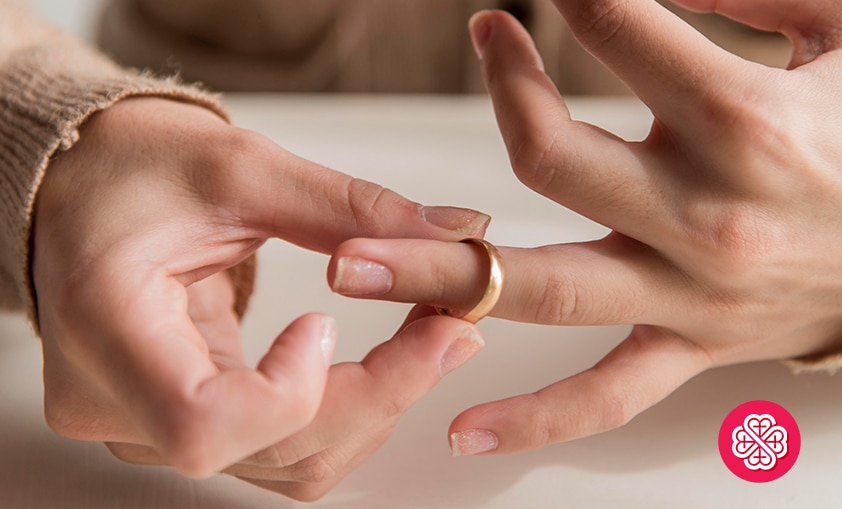Sometimes in Catholic circles, I’ve come across (or been a part of!) conversations where some people think it is almost too easy to get an annulment. As a woman who has gone through the divorce and annulment process, I don’t think this is a fair assessment of the Catholic Church. This also doesn’t honor the stories of divorced and/or annulled people within the Catholic Church.
Let me just blow that myth right out of the water for you. Trust me, there is absolutely nothing easy about annulments.
The annulment process forces you to take a look at yourself and the marriage, as well as work through other difficult things. Annulments can be triggering and painful. The process also takes a lot of hard work. Divorced individuals spend a measurable amount of time answering the official questionnaire. Annulments also involve a lengthy process, the average case in most dioceses takes about a year to process.
Perhaps what I think people mean when they talk about the ease of annulments is the action of the Church in granting them.
But it’s important to remember that the granting of an annulment is the last step in a long and hard process.
So, what exactly is an annulment then?

An annulment is an official investigation into a Catholic marriage to determine and see if a marriage was valid and sacramental on the day a couple exchanged their wedding vows.
The tribunal looks at testimony from both the perspective of the husband and wife, as well as several different witnesses. The Catholic Church looks to the beginning of the relationship to see if both parties truly understood what the sacrament of marriage is all about. The tribunal also determines if the man and woman entered fully and freely into a lifelong covenant.
If impediments are found that prevent the sacrament of marriage from occurring, then a marriage is declared null. This means even if a couple thought they were truly entering into a valid, sacramental union, there might be reasons they did not see at the time that the sacramental grace did not take, so to speak.
Taking a look at the marriage preparation process

At the end of the day, the annulment process really begins with preparation for marriage.
How so, you might wonder?
All the questions on the annulment paperwork have to do with things you ideally would discuss and know about your partner before getting married. This includes family of origin issues, personal trauma, siblings, school experience, any history of abuse, and more. All of these different areas can impact a man or woman’s consent to freely enter into the sacrament of marriage.
Read more: 5 Ways Parishes Can Better Support Divorced Catholics
Looking back to my own marriage prep, there was a lot to be desired. This was the case even though we both were practicing Catholics who were fairly involved in our faith. We took a standardized test with the deacon, met once to discuss the results, and took a Natural Family Planning class.
That was it.
I don’t blame our marriage prep for my marriage not working. I was not mature enough to get married, and never should have entered into marriage with that person.
However, priests are required to go to seminary for anywhere from six to eight years. How can we as a Church require so little of couples who are planning to enter a life-long commitment like marriage? Something has not been working. The divorce rate for Catholics is shocking similar as the divorce rate for secular couples. This means the Catholic Church needs to strive to prepare couples well for marriage.
Stronger, more focused marriage prep will help couples be better prepared for the sacrament of marriage. This would also prepares them well so they never have to think about going through the annulment process someday.
So no, annulments are not easy. Even if it seems like the Catholic Church frequently offers them, the main way we can work to have less Catholics go through the annulment process is to have better, stronger marriage prep for couples.
If you were previously married in the Church, what was your experience of marriage prep like?
Do you think it prepared you well for the sacrament of marriage?
Why or not?



